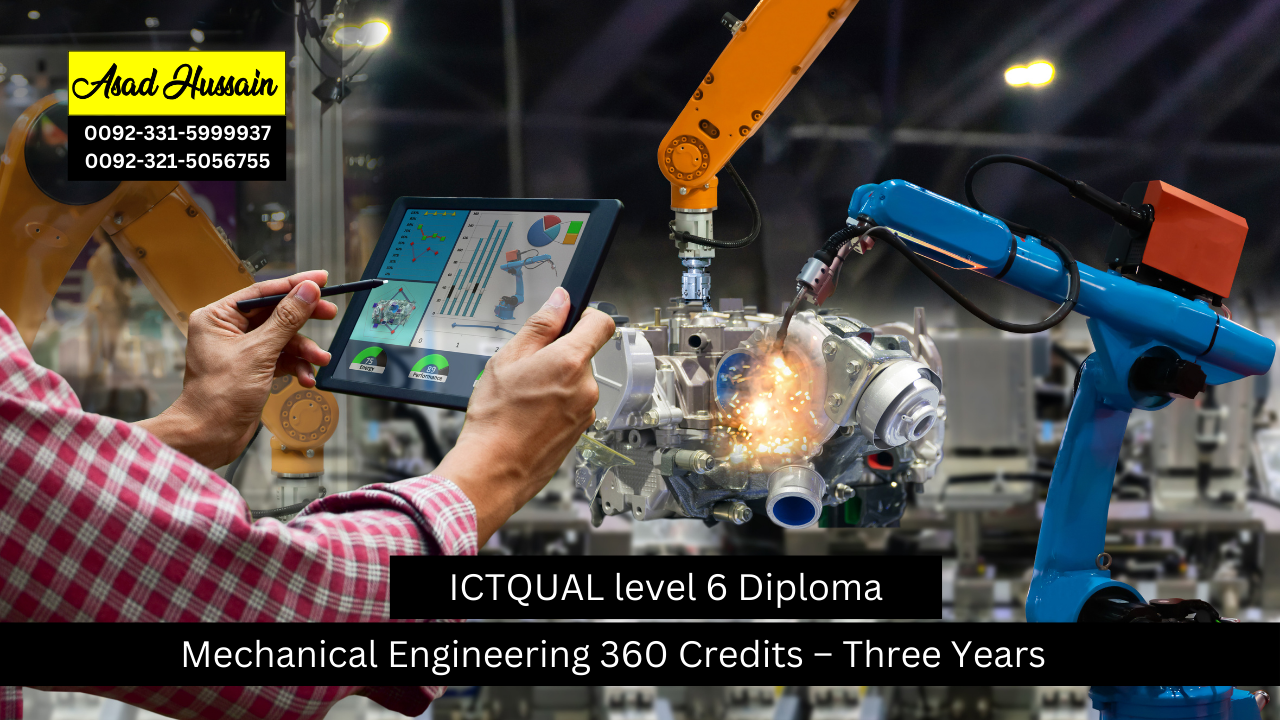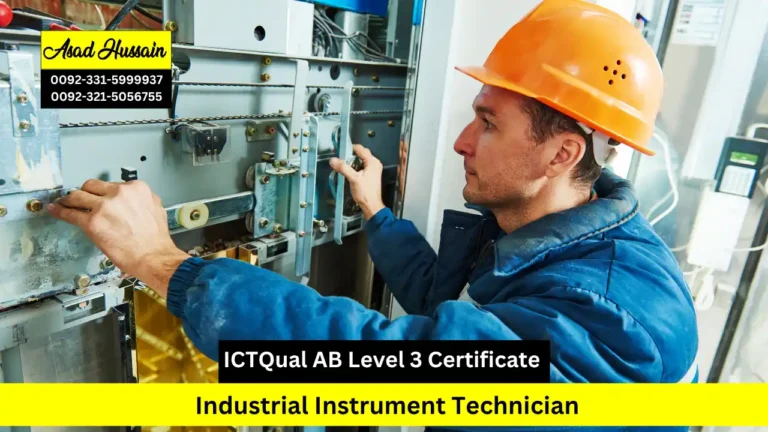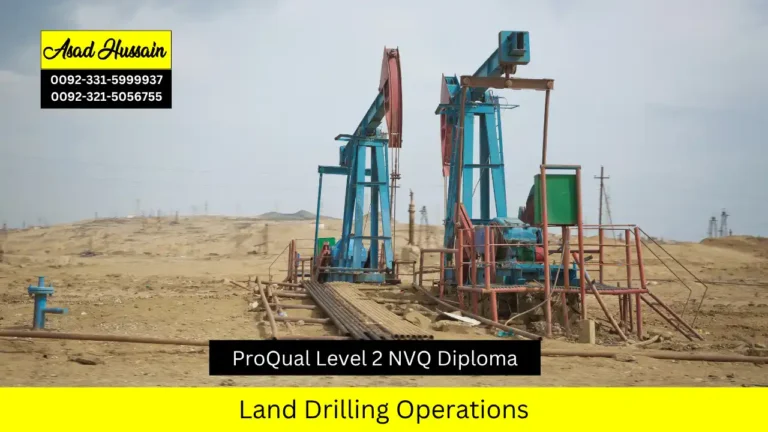Mechanical engineering is a broad and dynamic field that touches nearly every aspect of modern technology and industry. From designing machines and engines to improving energy efficiency, mechanical engineers play a critical role in shaping the future. The ICTQual Level 6 Diploma in Mechanical Engineering (360 Credits – Three Years) is designed to equip students with advanced knowledge and practical skills needed to thrive in this exciting and ever-evolving field.
If you’re passionate about mechanics, innovation, and problem-solving, this program is the perfect stepping stone toward a rewarding career in mechanical engineering. Let’s dive into what this qualification offers and why it’s an excellent choice for anyone looking to build a successful engineering career.
The ictqual-level-6-diploma-in-mechanical-engineering-360-credits-three-years is a comprehensive, industry-recognized qualification designed to provide both theoretical knowledge and practical skills in mechanical engineering. Over the course of three years, you’ll explore topics ranging from the fundamentals of engineering mathematics and mechanics to advanced areas like thermodynamics, materials science, robotics, and manufacturing processes.
This program is ideal for students looking to advance their mechanical engineering expertise and gain hands-on experience with real-world applications. Upon completion, graduates are equipped to take on complex engineering challenges and step into leadership roles within a variety of industries.
The ICTQual Level 6 Diploma in Mechanical Engineering (360 Credits – Three Years) provides a comprehensive education for aspiring mechanical engineers. By combining theoretical knowledge with practical experience, this qualification prepares you for a successful career in the rapidly evolving world of mechanical engineering. Whether you’re a recent high school graduate, a professional looking to upskill, or someone seeking to specialize in areas like robotics or sustainable engineering, this course offers the tools and expertise needed to thrive in the industry.
Program Highlights
Year 1: Foundation and Core Engineering Principles
- Mathematics for Engineering
- Engineering Principles
- Materials Science and Engineering
- Engineering Drawing and CAD
- Statics and Dynamics
- Introduction to Thermodynamics
- Manufacturing Processes
- Fluid Mechanics
- Electrical and Electronic Systems for Engineers
- Engineering Mathematics for Design
- Mechanical Design Fundamentals
- Engineering Project Management
Year 2: Advanced Engineering Concepts and Applications
- Advanced Thermodynamics
- Strength of Materials
- Heat Transfer and Fluid Dynamics
- Advanced Manufacturing Techniques
- Mechanical Vibrations and Acoustics
- Engineering Dynamics and Control
- Design and Analysis of Machine Elements
- Control Systems for Mechanical Engineering
- Engineering Materials and Failure Analysis
- Computer-Aided Engineering (CAE)
- Mechanical System Design
- Project Planning and Cost Estimation
Year 3: Specialization and Practical Application
- Advanced Mechanical System Design
- Energy Systems and Sustainability
- Advanced CAD and 3D Modeling
- Finite Element Analysis (FEA) for Mechanical Engineers
- Advanced Manufacturing and Robotics
- Mechatronics and Automation
- Engineering Research Methodology
- Industrial Engineering and Process Optimization
- Design for Manufacturability
- Professional Practice in Mechanical Engineering
- Engineering Innovation and Entrepreneurship
- Capstone Project/Thesis
To enroll in the ICTQual Level 6 Diploma in Mechanical Engineering, candidates must meet the following criteria:
- Age Requirement: Applicants must be at least 16 years old.
- Academic Qualifications: A minimum of a Level 5 qualification (or equivalent) in a related field, such as engineering, mathematics, or science. Acceptable qualifications include A-levels, a Level 5 BTEC qualification, or a comparable credential.
- Mathematics and Physics Proficiency: A strong understanding of Mathematics and Physics is essential, as these subjects form the core of mechanical engineering studies. Applicants are generally required to have at least GCSEs (or equivalent) in Mathematics and English.
- Prior Experience: While prior experience in mechanical engineering is not required, applicants with a background in engineering, technology, or related subjects may find the course more accessible.
- English Language Proficiency: For non-native English speakers, proof of English language proficiency is necessary. A minimum IELTS score of 6.0 (or an equivalent qualification) is typically required.
- Additional Assessments: Some institutions may also conduct interviews or skills assessments to evaluate the applicant’s readiness for the course and higher-level engineering studies.
These entry requirements ensure that candidates have the foundational knowledge and skills to succeed in the Level 6 Diploma program, preparing them for advanced studies and a career in mechanical engineering.
Year 1: Foundation and Core Engineering Principles
- Mathematics for Engineering
Develop proficiency in essential mathematical techniques such as calculus, algebra, and trigonometry to solve complex engineering problems. - Engineering Principles
Understand and apply core engineering concepts like forces, motion, and energy, establishing a strong foundation in mechanical systems and mechanics. - Materials Science and Engineering
Gain insight into the properties and behavior of materials commonly used in mechanical engineering. Analyze material performance and select suitable materials for engineering applications. - Engineering Drawing and CAD
Learn to create and interpret technical engineering drawings. Develop skills in Computer-Aided Design (CAD) to model mechanical systems effectively. - Statics and Dynamics
Apply the principles of static and dynamic analysis to solve engineering problems, focusing on forces, motion, and mechanical systems. - Introduction to Thermodynamics
Understand the basic principles of thermodynamics, including energy transfer and transformation, and their applications in mechanical systems. - Manufacturing Processes
Learn key manufacturing techniques such as casting, machining, and welding, understanding their role in producing mechanical components. - Fluid Mechanics
Study the properties and behavior of fluids, and apply fluid mechanics principles to practical engineering problems involving fluid flow and pressure. - Electrical and Electronic Systems for Engineers
Develop a basic understanding of electrical circuits and components, exploring their integration with mechanical engineering systems. - Engineering Mathematics for Design
Utilize advanced mathematical methods to solve engineering design challenges, including optimization and modeling of mechanical systems. - Mechanical Design Fundamentals
Learn the key principles of mechanical design, focusing on material selection, stress analysis, and component functionality in mechanical applications. - Engineering Project Management
Acquire foundational project management skills, such as planning, risk management, and resource allocation, to efficiently manage engineering projects.
Year 2: Advanced Engineering Concepts and Applications
- Advanced Thermodynamics
Deepen your knowledge of thermodynamic cycles, energy efficiency, and the design of energy systems, applying these concepts to engineering applications. - Strength of Materials
Examine how materials respond to different loading conditions, and apply concepts of stress, strain, and material failure to real-world engineering problems. - Heat Transfer and Fluid Dynamics
Study the mechanisms of heat transfer and fluid flow in mechanical systems, applying these principles to solve complex engineering problems. - Advanced Manufacturing Techniques
Explore advanced manufacturing methods like CNC machining, additive manufacturing, and robotics, understanding their industrial applications and limitations. - Mechanical Vibrations and Acoustics
Analyze mechanical vibrations, resonance, and noise in engineering systems, and apply acoustics principles to control vibration and noise in mechanical designs. - Engineering Dynamics and Control
Understand dynamic system behavior and apply control theory to stabilize and optimize mechanical systems’ performance. - Design and Analysis of Machine Elements
Design and analyze machine components such as gears, bearings, and shafts, considering their operational principles and performance. - Control Systems for Mechanical Engineering
Apply control theory to design feedback control systems, improving mechanical system efficiency and stability. - Engineering Materials and Failure Analysis
Investigate material failure modes such as fatigue, fracture, and corrosion, and apply failure analysis techniques to enhance system reliability. - Computer-Aided Engineering (CAE)
Develop proficiency in using CAE tools for simulation, validating designs with Finite Element Analysis (FEA) and Computational Fluid Dynamics (CFD). - Mechanical System Design
Design and optimize mechanical systems considering performance, safety, cost, and manufacturability, solving engineering challenges at the system level. - Project Planning and Cost Estimation
Learn cost estimation techniques and project planning skills, ensuring the successful completion of engineering projects within budget and on schedule.
Year 3: Specialization and Practical Application
- Advanced Mechanical System Design
Apply advanced design techniques and optimization methods to create complex mechanical systems, enhancing their performance and efficiency. - Energy Systems and Sustainability
Study renewable energy systems and sustainable design practices, designing energy-efficient systems to minimize environmental impact. - Advanced CAD and 3D Modeling
Master advanced CAD tools for 3D modeling, simulation, and prototyping of mechanical systems, enhancing design accuracy and efficiency. - Finite Element Analysis (FEA) for Mechanical Engineers
Use FEA techniques to analyze and optimize mechanical structures, solving complex problems related to stress, strain, and deformation. - Advanced Manufacturing and Robotics
Explore advanced manufacturing processes, focusing on robotics integration for automation in production systems and optimizing manufacturing operations. - Mechatronics and Automation
Study the integration of mechanical systems, electronics, and control systems, designing automated systems for industrial applications. - Engineering Research Methodology
Develop research skills to investigate engineering problems, conduct experiments, analyze data, and present findings in a professional manner. - Industrial Engineering and Process Optimization
Apply industrial engineering principles to optimize manufacturing processes, analyzing workflows to enhance efficiency and reduce costs. - Design for Manufacturability
Learn to design mechanical systems that are easy to manufacture, optimizing designs for cost-effectiveness and ease of production. - Professional Practice in Mechanical Engineering
Understand the professional and ethical responsibilities of mechanical engineers, and learn to navigate industry standards, regulations, and effective communication. - Engineering Innovation and Entrepreneurship
Explore opportunities for innovation and entrepreneurship in mechanical engineering, developing skills to create new products and bring them to market. - Capstone Project/Thesis
Complete a comprehensive engineering project or research thesis that integrates the knowledge and skills gained throughout the program, demonstrating your ability to solve real-world engineering problems and present findings professionally.
The ICTQual Level 6 Diploma in Mechanical Engineering is ideal for a wide range of individuals who aspire to pursue a career in mechanical engineering or advance their existing knowledge and skills in the field. This comprehensive program is designed for:
1. Aspiring Mechanical Engineers
This course is perfect for students who want to gain a deep understanding of mechanical engineering principles and practices. If you have a keen interest in designing, analyzing, and manufacturing mechanical systems, this diploma will provide you with the academic and practical knowledge needed to thrive in the industry.
2. Individuals with a Background in Engineering or Science
If you already have a Level 5 qualification (or equivalent) in a related field such as engineering, science, or technology, this course is an excellent way to build on your existing knowledge and specialize in mechanical engineering. It will help you transition from basic engineering concepts to more advanced and specialized skills.
3. Technical Professionals Seeking Career Advancement
This diploma is also suitable for individuals already working in the engineering or manufacturing sectors who want to enhance their technical expertise and career prospects. Whether you’re looking to move into a senior engineering role, become a specialist in mechanical design, or pursue roles in project management, this qualification will support your professional growth.
4. Recent School Leavers with an Interest in Engineering
For school leavers with a strong background in mathematics, physics, or a related subject, this course offers an excellent pathway to a rewarding career in mechanical engineering. The structured, progressive curriculum will help you gain foundational knowledge in the first year and specialize in advanced mechanical engineering concepts by the third year.
5. Individuals Looking to Move into Mechatronics and Automation
With modules focused on robotics, automation, and mechatronics, this course is ideal for those interested in integrating mechanical systems with electronics and control systems. It provides a strong foundation in these cutting-edge fields, preparing you for modern engineering roles in industries like manufacturing, automation, and robotics.
6. Engineers Seeking Specialization in Sustainable Energy Systems
If you have an interest in sustainability and renewable energy, this diploma allows you to specialize in energy systems and sustainable engineering practices. It covers topics such as energy-efficient design, renewable energy technologies, and designing systems with minimal environmental impact, making it ideal for anyone interested in green technologies.
7. Career Changers
This course is also suitable for individuals seeking a career change into the mechanical engineering field. If you have a background in a different engineering discipline or another technical profession and wish to transition into mechanical engineering, this diploma will equip you with the necessary skills and qualifications.







